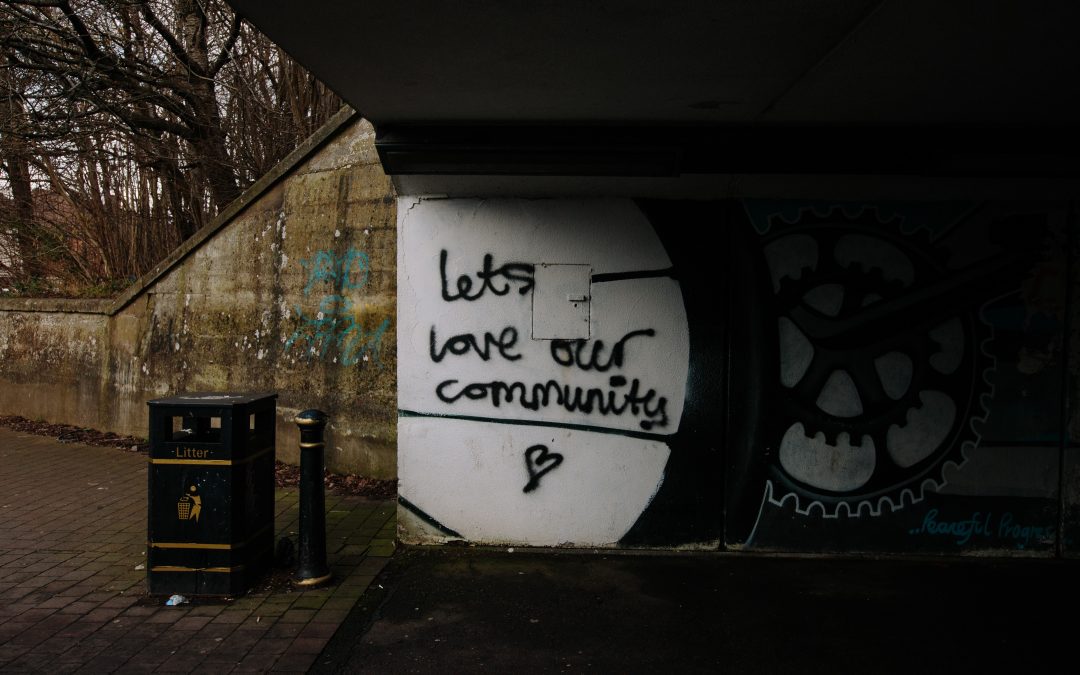
Community Leadership Summit 2011 Announced!

I am delighted to announce the [Community Leadership Summit 2011](https://www.communityleadershipsummit.com/), now in it’s third year! This year it takes place on the **23rd and 24th July 2011**, the weekend before [OSCON](https://www.oscon.com/oscon2011) at the [Oregon Convention Center](https://www.oregoncc.org/). Thanks again to [O’Reilly](https://www.oreilly.com) for providing the venue.
For those of you who are unfamiliar with the CLS, it is an entirely free event designed to bring together community leaders and managers and the projects and organizations that are interested in growing and empowering a strong community. The event provides an unconference style schedule in which attendees can discuss, debate and explore topics. This is augmented with a range of scheduled talks, panel discussions, networking opportunities and more.
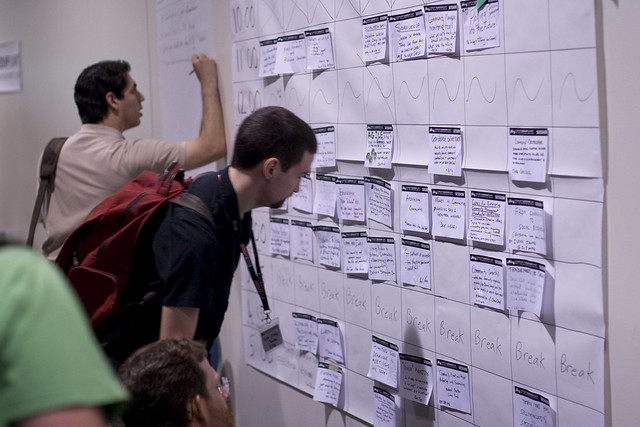
The event provides an opportunity to bring together the leading minds in the field with new community builders to discuss topics such as governance, creating collaborative environments, conflict resolution, transparency, open infrastructure, social networking, commercial investment in community, engineering vs. marketing approaches to community leadership and much more.
The last two events have been hugely successful and a great way to connect together different people from different community backgrounds to share best practice and make community management an art and science better understood and shared by us all.
I will be providing more details about the event closer to the time, but in the meantime be sure to [register](https://www.communityleadershipsummit.com/register/) (it is entirely free!) and [join the Facebook event](https://www.facebook.com/event.php?eid=196907063655463).
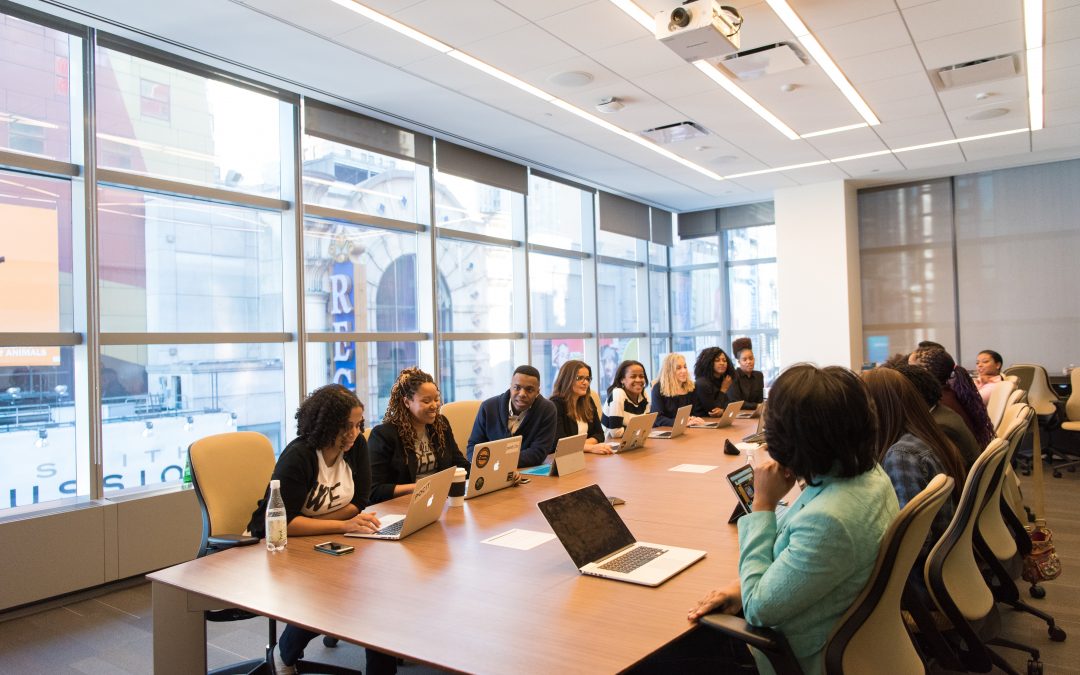
Weekly Q+A Sessions
One thing we are always trying to improve and optimize is transparency in the Ubuntu project. One piece of work to this end is ensuring that the managers in the Ubuntu Engineering Team are available to answer questions that the community may have.
As such, this week we will be kicking off a regular Q+A slot with a rotating list of people who will be answering questions. This weeks session will be run by **Pete Graner** the **Kernel Engineering Manager** – do you have questions about our kernel, what we are shipping, how the community works, or anything else? Well Pete will be there to give you all the answers!
The sessions will take place every Friday at **5.30pm UTC** in `#ubuntu-meeting` on freenode.
This is the schedule for the next few weeks:
* 4th Feb 2011 – Pete Graner, Kernel Engineering Manager
* 11th Feb 2011 – Robbie Williamson, Server Engineering Manager
* 18th Feb 2011 – Allison Randall, Ubuntu Technical Architect
For more details and to always check out the current schedule, see [this page](https://wiki.ubuntu.com/WeeklyQandA).
In addition to this I do my weekly Q+A videocasts at **7pm UTC every Wednesday**.
Enjoy, folks!

Improving Diversity At UDS
The [Ubuntu Developer Summit](https://uds.ubuntu.com/) is our twice-yearly event in which the Ubuntu community gets together to discuss, design, and plan the work for the next release of Ubuntu. It is an important staple in the Ubuntu calendar, and we meet next in May in Budapest, Hungary.
We always try to make UDS a welcome and inviting environment to meet people, engage in enjoyable discussions, and work together to improve Free Software. We also try to make UDS a diverse environment, and welcoming to everyone. This diversity has formed in a rather ad-hoc way though – we have not explicitly tried to reach out and encourage diversity and we can do better. As such, I just wanted to share some work that is going on and encourage those of you who are interested in this topic to participate.
These include:
* We now have an [anti-harassment policy](https://uds.ubuntu.com/harassment/). This work was led by Charles Profitt and thanks to [Matt Zimmerman](https://mdzlog.alcor.net/) and [Valerie Aurora](https://valerieaurora.org/) for their skillful guidance. We still have some event-specific contact details still to add there, but Marianna is getting this information and it will be updated soon.
* Matt Zimmerman is also working on a diversity statement. While this will encompass the wider Ubuntu project, it will also be added to the UDS website.
* A few weeks ago I [reached out](https://lists.ubuntu.com/archives/ubuntu-women/2011-January/003102.html) to the [Ubuntu Women](https://ubuntu-women.org/) team to ask for their guidance on how we can encourage a more diverse environment at UDS. A number of interesting efforts are going on in this area:
* Elizabeth Krumbach [posted](https://lists.ubuntu.com/archives/ubuntu-women/2011-January/003115.html) that she has created [a page on the Ubuntu Women site for UDS](https://wiki.ubuntu-women.org/UDS) which provides some basic information and the beginning of a FAQ. More feedback and content is welcome.
* Elizabeth also created a [UDS stories](https://wiki.ubuntu-women.org/UDS/Stories) page which which provides some useful context for prospective women attendees interested to learn more about the event.
* The team is also [discussing how to provide support](https://lists.ubuntu.com/archives/ubuntu-women/2011-January/003128.html) and guidance for filling sponsorship requests and including all the relevant information. I think this is a wonderful idea. 🙂
* We are keen to work on a big outreach campaign to use these resources to raise the visibility of diversity at UDS and encourage more women to apply for sponsorship and participate. This is going to be the next phase of the discussion.
I just want to say a huge thankyou to the Ubuntu Women team for their contributions and guidance in this project, and I would like to encourage you to [join in the discussion](https://lists.ubuntu.com/mailman/listinfo/ubuntu-women). I think we have a fantastic opportunity here to help UDS be wonderful example of how diversity should be core to the values of the event and offer a more reflective experience of great community working on interesting problems together.

Making Ubuntu More Personal: Identify Contributions To Engage More Personally
A few weeks back I [wrote about my desire to make Ubuntu feel more personal](https://archivedblog.jonobacon.com/2011/01/07/making-ubuntu-more-personal/) for new and existing contributors. The goal here is to help community members to have a fulfilling experience in which there is a very personal sense of engagement (i.e. people care about your specific contributions and experience with Ubuntu).
I wanted to share some work that we have been doing along these lines to not only show you kind of focus we are trying to take, but to also hopefully inspire some of you to take a similar interest in achieving the same kind of personal experience.
This project started when [Daniel Holbach](https://daniel.holba.ch/blog/) and I were discussing how to reach out to prospective developers better to give them a helping hand. One thing that struck us was that we didn’t have particularly good visibility on the timeline of someone’s contribution as a developer. Sure, we knew folks who would reach out to us for help and assistance, we knew people who would come to UDS, and we knew active contributors in `#ubuntu-devel`, but we suspected these folks were only part of the picture. Many people contribute to Ubuntu and we often don’t know some of them, let alone have an idea of their work so far.
Part of the goal here is to have better visibility on what someone has done so we can reach out and guide folks through their Ubuntu development adventure. The concept of a *significant and sustained* contributions has always been at the heart of how we assess our contributors for membership and upload access to our repositories, but it is often difficult to get a real feel for the *sustained* part. Daniel and I were keen to resolve this and get a better overview of people going through our developer programme and how much work they have performed.
To this end, we fleshed out a plan to programmatically generate a series of graphs for everyone who who was using the [Ubuntu Sponsorship Queue](https://wiki.ubuntu.com/SponsorshipProcess) to get their work in Ubuntu (in other words, prospective developers asking current developers to review their work and upload it), and then use this graph as a means to see the commonality of their contributions and how sustained they are.
Daniel put together these graphs by parsing upload emails and and the graph looks like this:
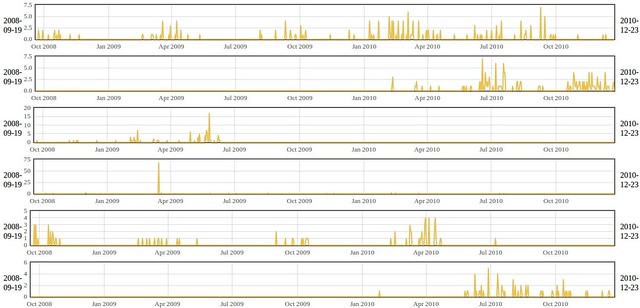
This is how it works:
* Each individual graph shows a different contributor who is currently using the sponsorship queue to get their work in Ubuntu.
* Each graph has the same start and end date (19th Sep 2008 – 23rd Dec 2010).
* Each spike shows the number of *accepted* uploads made to the archive (i.e they had an upload successfully sponsored by a developer). Please note: unlike the X axis in the graph, the Y axis does not share the same scale (e.g. the top graph ranges from 0 – 7.5 contributions and the bottom is 0 – 6).
So what do these graphs tell us? Well, they give us a *reasonable* indication of those people who are actively contributing to Ubuntu in a significant and sustained way. This page gives us an opportunity to instantly look at all the people currently engaging with the sponsorship queue and see their contribution history. This enables us to do a number of things:
* Reach out to those people who have been clearly performing *significant and sustained* contributions and ask them if there is anything we can do to help, give them encourage and respect, and otherwise make their experience more pleasant and encouraging.
* It can sometimes be difficult for a prospective developer to know when they should apply to be a MOTU or core-dev. This provides us with a useful resource to see *significant and sustained* contributions and recommend those developers to apply for developer approval.
* It gives us a chance to see commonalities of spikes of activity and dips in activity and to see what those causes are.
When the graph was in place and looked over it, I asked Daniel to start reaching out to different people to offer this help and guidance and already we have seen some wonderful results. These folks seem genuinely happy that we have reached out to them, and here are two examples of their feedback:
>”Thanks for getting in touch, much appreciated and shows how Canonical cares about its community.”
>”I appreciate your direct correspondence, this kind of stuff is what sets Ubuntu apart.”
This is exactly the kind of sense of personal care that I am keen for us to grow in the project. I want to say a huge thankyou to Daniel for his efforts on this, and I am looking forward to suggestions for other areas in which we can build a more personal and human Ubuntu experience.

Some Further Notes On Qt In Ubuntu
[Mark](https://www.markshuttleworth.com/) recently [blogged](https://www.markshuttleworth.com/archives/568) about plans to make [Qt](https://qt.nokia.com/products/) a first-class citizen alongside GTK in Ubuntu. He outlined the reason for the plan in the opening few paragraphs:
> As part of our planning for Natty+1, we’ll need to find some space on the CD for Qt libraries, and we will evaluate applications developed with Qt for inclusion on the CD and default install of Ubuntu.
> Ease of use, and effective integration, are key values in our user experience. We care that the applications we choose are harmonious with one another and the system as a whole. Historically, that has meant that we’ve given very strong preference to applications written using Gtk, because a certain amount of harmony comes by default from the use of the same developer toolkit. That said, with OpenOffice and Firefox having been there from the start, Gtk is clearly not an absolute requirement. What I’m arguing now is that **it’s the values which are important, and the toolkit is only a means to that end**. We should evaluate apps on the basis of how well they meet the requirement, not prejudice them on the basis of technical choices made by the developer.
Mark then goes on to outline some of the challenges (e.g. system settings), some of the solutions (e.g. Canonical are funding development from [Ryan Lortie](https://blogs.gnome.org/desrt/) to build [dconf](https://live.gnome.org/dconf) support into Qt), and he also discusses how Qt apps should be welcome in the Ubuntu installation if they represent best-of-breed for the Free Software desktop. I couldn’t agree more.
Before Mark wrote the blog entry, he talked to the [Ubuntu Community Council](https://wiki.ubuntu.com/CommunityCouncil) and the [GNOME Board](https://foundation.gnome.org/about/), and the Community Council asked for a short FAQ that outlined some of the likely common questions. I prepared it and thought it would be useful to share it here:
* **Why is Ubuntu shipping Qt on the CD in 11.10?** – there are two drivers behind this decision. Firstly, the Ubuntu project is working to ensure that Qt application developers can write apps which fit into the Ubuntu desktop smoothly. It is important that Ubuntu, as a platform, address the needs of developers, giving them as much flexibility as possible while retaining a coherent standard experience for users. Secondly, giving developers the extra toolkit option should mean we end up with better apps all round as the range of apps for assessment and inclusion will be wider. The key criteria for evaluation of any app for inclusion are independent of the actual toolkit. We won’t ship an app by default that we don’t think offers a great experience, not just on a standalone basis but as part of the whole system.
* **Does this mean you are moving away from GNOME and GTK?** – we will still continue to ship Unity and GNOME applications. The decision to support Qt in the default install is an *additive* decision. It is not intended to replace GTK+ or GNOME. Qt has proven itself as a high quality toolkit, popular with developers, and we want to be able to support this effectively in Ubuntu as well as Kubuntu.
* **Does this mean you are supporting GNOME less?** – not at all. Ubuntu will continue to be built on GNOME technologies and ship GNOME applications. This decision is not reducing our commitment to GTK or GNOME, it is merely expanding it to include Qt.
* **Are you now therefore moving to KDE?** – we have no plans to ship KDE as the default desktop in Ubuntu. We will of course continue to provide the KDE experience in Kubuntu.
* **How will you manage some of the outstanding technical integration issues?** There are some areas in which Qt does not neatly fit into the Ubuntu desktop experience and Canonical is investing in resolving some of these issues with Qt. Our desktop team engineers will be performing work to first ensure Qt is a well supported component in Ubuntu, but also so it integrates as best as possible in the Ubuntu desktop experience. We are also going to fund the work needed to make Qt / QML apps talk dconf, which means they can share settings and setting-update behaviors with GTK apps very easily. This work is being performed by Ryan Lortie from the GNOME project under contract to Canonical.
* **Does this mean Qt apps could be included on the CD?** – we’ll be open to Qt apps being included in Ubuntu if they are appropriately integrated. If an application integrates well into the Ubuntu experience, we would be open to its inclusion in a release to offer the best experience for Ubuntu users. By “integrates well” we mean things like: uses the dconf configuration system with live adoption of settings changes, follows Ubuntu font and theme settings automatically, uses our menu and indicator and notification system appropriately etc.
Personally, I think this is a great step forward. I used to hack with Qt many moons ago, and while I changed to use GTK as my preferred toolkit, recent innovations in Qt (such as the incredible [QML](https://en.wikipedia.org/wiki/QML)) and it’s popularity with developers, makes this not only a wise choice for app authors who want to build Qt apps on Ubuntu, but also for Ubuntu users who will have a rich set of Qt apps open to them. This doesn’t change our relationship with GNOME or GTK, it is purely an additive decision, and I think it will serve our users well.
Rock and roll!

Making Ubuntu More Personal

Community is a *deeply personal* experience. While *write* communities such as Open Source get together to make things (as opposed to *read* communities who consume content together), the attraction and thrill is only partially in the collaboration. What really makes *write* communities fun are the personal relationships that develop; what starts as nicknames on a screen shortly burst with life and become friends who we enjoy spending time with, sharing our ideas with, and in many cases relying on to help us through tough patches of our lives. The very reason Open Source and community attracted me in the first place is that this is not just boring, cold, and unfeeling computing, it is computing driven by people who share their humanity to make the world a better place.
I like that.
I like that a lot, and I think lots of you good people do too.
Over the years in my role as *Ubuntu Community Manager* I have seen the project grow from strength to strength. I am hugely proud of all of the efforts the community has made and the achievements that we can associate with the project. I really feel we are on target for breaking new ground for desktop Linux. While there are many desktop distributions, and many of them perform stunning work, the furthest many have got to mainstream success with users (aside from just Linux enthusiasts) has been getting close to the chasm…but not taking a run-up to get over it. I feel like we are teetering on the edge of the chasm with Ubuntu, and now we have the opportunity to thrust it over into the mainstream, and therefore thrust Free Software into the mainstream.
Throughout the growth in our community, we have naturally needed to develop some processes and procedures in how people can participate. As we have scaled more and more, we have relied on these processes more and more. We can broadly break these down into two areas; **education** and **assessment**.
*Education* is how new contributors can learn how to participate and interact with Ubuntu and it’s contributors in a safe environment that (a) encourages the new contributor to try things and learn, but (b) protects Ubuntu from mistakes that rookies often make. *Assessment* is how we assess new contributors when they take this education and experience and apply to gain elevated privileges in our community such as uploading packages to the archive, becoming a governance council member, or being sponsored to the [Ubuntu Developer Summit](https://uds.ubuntu.com/).
Let’s look at an example of what I am talking about.
If someone chooses that they would like to contribute to Ubuntu as a packager — that is, packaging software, fixing bugs, and other maintenance work — well, we have a pretty standard workflow for how this happens. It looks like this:
#### Education
* The new contributor reads our documentation, joins our learning events, and otherwise grows their skills in Debian packaging and Ubuntu.
* They then road test this knowledge by fixing bugs and contributing their changes to the sponsorship queue. This queue is a list of contributions that new packagers make from across the project.
* We then ask our existing `core-dev` and `motu` developers to review these contributions, offer feedback, and when the contribution is in shape after a little bit of back and forth, it is uploaded.
*Important points to note*: the contributor may provide ten contributions and get ten or more different people providing feedback. That is ten mini-relationships growing, with each not necessarily getting to know the contributor in any significant detail, and the contributor not getting to know any Ubuntu developers in any significant detail either. This process also assumes that someone will pick up their contribution and review it.
#### Assessment
* When the contributor has made a number of contributions, it is often unclear when they should apply for upload rights (as many different people have reviewed their work and don’t see the amalgamated growth in skills). Typically another community member will encourage them to apply.
* The contributor puts together a wiki page outlining their contributions and the work they have performed. They also ask others to write testimonials advocating their approval as an uploader.
* A governance board then reviews the wiki page, asks the contributor some questions, and then has a vote to either accept or reject their application for upload rights.
*Important points to note*: (a) the governance board may have never worked directly with the contributor, and (b) are therefore basing their assessments on what I would refer to as a *tick-box* review. That is, a set of criteria that show that the contributor has performed useful technical skills, but does not really assess the *trust* in that person (i.e. do we trust this person to have the keys to our archive?). The reason: *trust* is difficult to assess when the contributor has had a wide range of small interactions with other peers (and again don’t see the amalgamated growth in skills), and the governance board may have not had any direct contact with the contributor themselves.
While this process has certainly born much fruit and many contributors have successfully been through it, it is far less personal than I would like. I would like to see a contributor’s education and assessment experience be more attuned to a specific mentor or small set of mentors, of which I will discuss a little later.
### What I Want To Shoot For
Over the years I have met a number of people who have proudly told me who inspired them to get into Open Source and a given community. Often statements of “*XYZ really inspired me to get involved*” or “*XYZ really helped me over some obstacles in getting involved*” really resonate with us when we hear these stories. Essentially, **people join because of the software, but they stay because of the community**.
We often here of these heartening experiences, but they are not systematically part of our community. Our community processes are not designed to produce those kinds of statements, but to ensure everyone gets a fair crack of the whip at learning the skills required and being able to contribute if they meet quality requirements. Our processes are designed to deliver education and assessment in a form that results in successful contributions. What I am proposing is that we improve our processes and community to engineer exactly those kinds of statements; statements that celebrate that personal interactions with another community member helped someone realize their full potential and stick with it, despite any obstacles in their way.
As an example, I think it could be a more pleasant experience for a prospective new developer to have a single mentor who guides them through their education and assessment experience. This person would review their work, see their progress, and frankly, if that person is already a trusted `core-dev`, I think they should be empowered to have the responsibility to approve someone for upload access (possibly with another person as a co-supporter of the new contributor if we want to be sure). I think this would be a far more enjoyable experience for the new contributor and would save a lot of time and effort in which the new contributor has traditionally had to build a case to convince a governance board that they have the chops.
### Growing a Community-wide Personal Experience
Of course, the aforementioned developer review case is just one example of an opportunity for injecting more of a 1-on-1 social connection into our community. While I don’t think for a second that our culture is broken, my suggestions here are merely wishing to optimize our culture around what so many of us truly enjoy about community – a sense of personal engagement.
This personal engagement can apply to many other areas. Here are just a few examples after a few minutes of thinking:
* **Highlighting inspirational leaders** – the Ubuntu community is jam-packed with incredibly inspirational leaders. Not all of these people have the words *leader, manager, team contact* or other such title; many are regular Joes and Josephines who we know and respect as always performing good work and having a constructive, balanced and positive approach. I would like to celebrate these people more. We have done this in the past with the [Hall Of Fame](https://hall-of-fame.ubuntu.com/), blog entries, and more, but I think we can do even more of this.
* **Encourage more and more mentoring** – mentoring is a hugely valuable feature in a community and is the heart of building a 1-on-1 connection between new and existing contributors. Of course, it is a complex challenge at times – it requires good mentors who have time to help new contributors. I wonder if we can come up with some ideas for improving mentoring in our community.
* **Building a culture of trust** – as I said earlier, I think we may want to consider thinking more about how we build a culture of trust in which a solid demonstration of trust and capability can open doors. Put it this way, if a *Colin Watson*, a *Martin Pitt*, or a *Iain Lane* recommended someone for upload access, I personally would take their word for it and trust their judgment; they are smart people who take care and attention in their work. Sure, we have governance boards who we ratify as having this capability, but I wonder if we should expand it beyond governance boards? While we should be conscious to not turn Ubuntu into an “old boy’s club”, I also think there is a huge opportunity to make our processes leaner and *trust the judgment of people who we trust to have good judgment*.
So what is my goal with this blog entry? I really have no fixed goal other than sharing some of my thoughts recently. This is something I want to have a discussion in the community about, and I welcome your (constructive) feedback and ideas. How can we create more experiences that feel personal, social, and like someone cares about your success in our community?
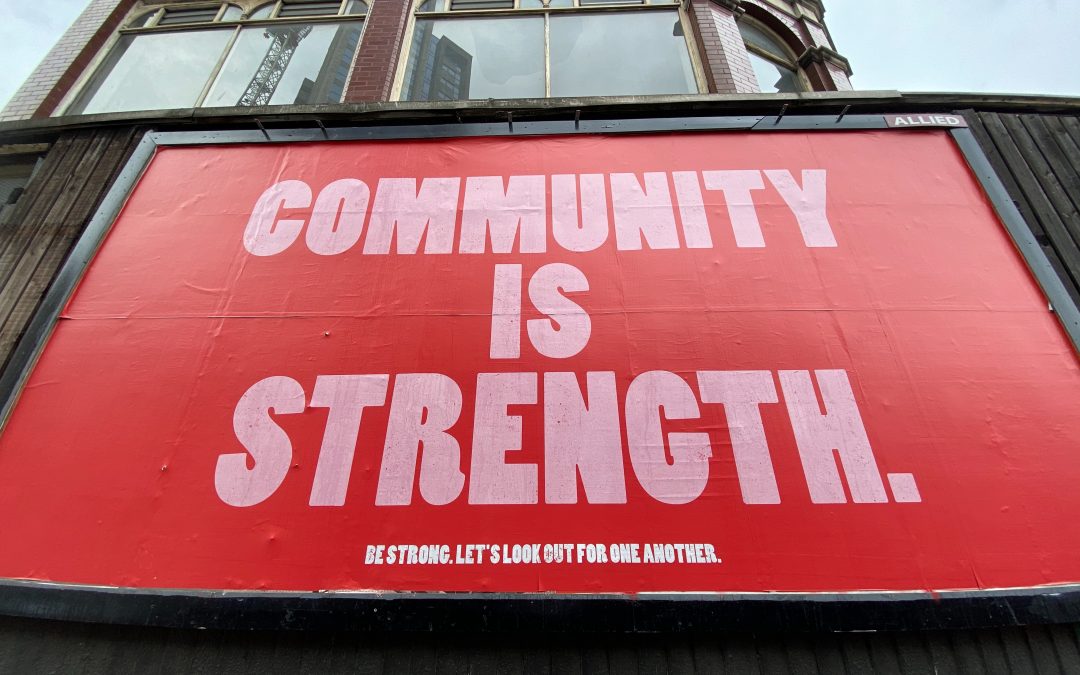
Thinking About Ubuntu And 2011
So here I am, and it is the night before I go back to work for my first day back in 2011. I have had some wonderful and frankly much needed time off work. Towards the end of 2010 I was pretty bushed and was ready to spend some time with my wife and family, my guitar, and my Playstation. The time off was worth every second and I am now rested and raring to go…raring to contribute to making Ubuntu a success in 2011.
I thought I would take a few minutes to bend your ears and talk about some personal goals in 2011 that I am shooting for. These are not specific objectives such as *build feature X into Ubuntu*, but more personal goals that I think will help to continue to improve my effectiveness in my role and improve the community experience in Ubuntu. The reason I am sharing these goals is that I think it is good to be open and transparent about personal growth, and it makes it clear to everyone what my goals are.
So my plans are:
* **Be the best manager I can be** – my team are my top priority at Canonical, and they will continue to be my top priority in 2011. While I think we have a happy and productive team, I don’t want to be complacent, and I want to help the guys be the best they can be and have the most fulfilling and productive environment for them to grow and enjoy their roles. I am incredibly proud of Jorge, Daniel, David, and Ahmed, and I know 2011 is going to be a great year for them.
* **Improve the *personal* Ubuntu experience** – I talked about this at UDS, but I want to make the Ubuntu experience far more personal. I want it to be less about engaging with processes, and more about engaging with inspiring, encouraging, and supportive people. We have seen explosive growth in Ubuntu over the last few years, and I want to augment that growth with a strong 1-on-1 experience in our community. I want people to *join because of the software, and stay because of the community*.
* **Help others to work with the community more** – this is something that my manager, Rick, and I talked a little about before Christmas. We are both keen to have me work with some other Canonical staff members to have a more forward facing and inclusive community role with our community. I want to work with key members of the teams and encourage those folks to respond to community feedback and concerns, and actively work to inspire and encourage contributions.
* **Manage my productivity time better** – like many other people, I work a long week, but I feel like I can better tune my time. I spend *huge* amounts of time on the phone and processing email, and I feel like I need to protect more of my time so I can be working on projects and working with specific folks. I recently saw an excellent National Geographic documentary about Air Force One in which then-President Clinton said that he loved Air Force One because when he was up there there were fewer interruptions, phone calls, and meetings, and it gave him a chance to be really productive. I want to build more of an Air Force One environment in my work day so I can open up a little more time and be more productive in my projects.
* **Blog more** – I go through fits and spurts of blogging. I typically stop blogging when I am really bogged down with a lot of work, and then when I have a bit of a breather it gives me time to share some thoughts. I respect that great communities are driven by transparent and open leaders, and I want to be more transparent and open and share these thoughts via my blog.
Of course, like anyone else, there are many other individual goals and ambitions that I am striving for, but these are part of my initial thinking. I am looking forward to getting stuck in at 7.30am tomorrow morning. 🙂

Call For Hackers: Severed Fifth Desktop App
We have an absolutely rocking development platform in the Ubuntu, GNOME, KDE and Linux and world. Today I was chatting to some of the [Severed Fifth](https://www.severedfifth.com/) Street Team folks and we were talking about how awesome a Severed Fifth Desktop App could be. Imagine an app that shows you recent news, pops up notification bubbles when new Severed Fifth tweets are posted, has a small in-built media player for playing Severed Fifth music easily, has an embedded IRC channel so you can meet the Severed Fifth community and more. This could be a super cool app for Street Team members and Severed Fifth fans to use.
I wrote some ideas for the app and while I would love to hack on it, all of my spare time is taken with rehearsing with the band and getting ready for the album.
As such, I wanted to put the call out to see if any of you would be interested in hacking on a Severed Fifth Desktop App.
See the [post here and follow up there if interested](https://www.severedfifth.com/forum/viewtopic.php?f=7&t=141) – thanks in advance to everyone who helps! 🙂

Severed Fifth 2010 Recapped
2010 has been a great year for [Severed Fifth](https://www.severedfifth.com) and I am delighted with the growth in the project. Over the holiday I put together a *2010 Recapped* video which summarizes this progress, the growth of the [Severed Fifth Street Team](https://www.severedfifth.com/streetteam), and more:
*Can’t see the video? [Click here!](https://www.youtube.com/watch?v=sjPNdYJMBAc)*
Thanks to everyone who has participated and contributed their talents to helping us to change the music industry.

Working Together To Get Unity Ready For Natty
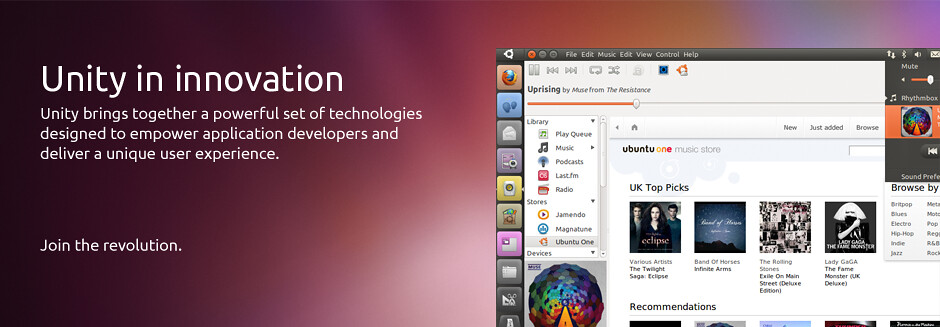
As many of you will know, we have been working hard in the Ubuntu world to ensure that the transition to [Unity](https://unity.ubuntu.com) is not only smooth and painless, but also provides the best possible user experience. To do this the DX team, Ayatana community, desktop team, and my team have been working closely to ensure we are not only getting plenty of testing for Unity, but helping to ensure the community is an open and accessible as possible.
I just wanted to highlight some of this work, and throw out some kudos:
* `didrocks` and `seb128` have been working their socks off to ensure that recent Unity packages are getting uploaded to Natty. They have been doing a stunning job and Unity in Natty has settled down a lot and doesn’t crash as much.
* `jcastro` and myself have been working together to encourage more and more people to get involved and participate in Unity development by fixing simple bugs that are labelled *bitesize bugs*. These bugs provide a great opportunity for folks to get started and get to know the Unity team. I have asked Jorge to publish a report every Tuesday not only detailing which bitesize bugs are ripe to be squashed, but also highlighting the fantastic work going on by these new contributors (see the most recent report [here](https://castrojo.tumblr.com/post/2312609745/unity-status-report-for-20-december)). Jorge has been doing a great job here.
* I just want to shout out to `DBO` for providing swathes of help and assistance to these new contributors to help them get up to speed with the codebase. He has been doing a rocking job!
* It is not just about development of course, translations is another key area in which we want Unity to have incredible support and David Planella [recently kicked off a campaign](https://davidplanella.wordpress.com/2010/12/21/project-unity-l10n/) to ensure Unity is fully translated.
* I also just want to point out the great reporting going on at [OMG!Ubuntu](https://www.omgubuntu.co.uk/) in higlighting the [new work going on in Natty and Unity](https://www.omgubuntu.co.uk/tag/natty/).
Now of course, here is the huge caveat – *Unity is not finished, Natty is not finished, and there is lots of work to do and lots of things are broken* – but, heck, this is an Open Source project and if we work together we can all make a difference in making Unity better. So how do you get involved?
### How YOU can help Unity
Want to lend a hand and make Unity even better? Awesome, we dig people like you. Here is how you can get started…
#### Fixing Bugs
1. Go and read [how to get started coding](https://unity.ubuntu.com/getinvolved/).
2. Pick one of the [bitesize bugs](https://bugs.launchpad.net/unity/+bugs?field.searchtext=&orderby=-importance&field.status:list=NEW&field.status:list=INCOMPLETE_WITH_RESPONSE&field.status:list=INCOMPLETE_WITHOUT_RESPONSE&field.status:list=CONFIRMED&field.status:list=TRIAGED&assignee_option=any&field.assignee=&field.bug_reporter=&field.bug_supervisor=&field.bug_commenter=&field.subscriber=&field.tag=bitesize&field.tags_combinator=ALL&field.has_cve.used=&field.omit_dupes.used=&field.omit_dupes=on&field.affects_me.used=&field.has_patch.used=&field.has_branches.used=&field.has_branches=on&field.has_no_branches.used=&field.has_no_branches=on&search=Search).
3. Go and read [how you fix a bitesize bug](https://wiki.ubuntu.com/Unity/Bitesize).
4. Be sure to log on to `#ayatana` on freenode IRC to ask questions (access it from within your web browser [right here](https://unity.ubuntu.com/contact-us/)).
#### Testing
1. Go and [download the latest Natty daily ISO image](https://cdimages.ubuntu.com/daily/current/).
2. Install it on a spare partition, machine or a [USB stick](https://archivedblog.jonobacon.com/2010/11/30/testing-natty-and-unity-safely-with-a-usb-stick/).
3. When you find a bug in Unity, open a terminal and run `ubuntu-bug unity` to file the bug. Follow the instructions.
4. Be sure to log on to `#ayatana` and `#ubuntu-desktop` on freenode IRC to ask questions (access it from within your web browser [right here](https://unity.ubuntu.com/contact-us/)).
#### Design
1. Join the [Ayatana mailing list](https://launchpad.net/~ayatana) and discuss your ideas there.
2. Be sure to log on to `#ayatana` on freenode IRC to ask questions (access it from within your web browser [right here](https://unity.ubuntu.com/contact-us/)).
#### Translations
1. Go and read [David’s guide for how to get started](https://davidplanella.wordpress.com/2010/12/21/project-unity-l10n/).
Thanks to everyone who participates in Unity in whatever way you can.
**Have Unity questions? I will be doing my live Ubuntu, Community and Unity video Q+A live on Wed 23rd Dec 2010 at 11am Pacific / 2pm Eastern / 7pm UTC/UK / 8pm Europe – [click here to join in the fun](https://www.ustream.tv/channel/at-home-with-jono-bacon) and bring your questions!**
